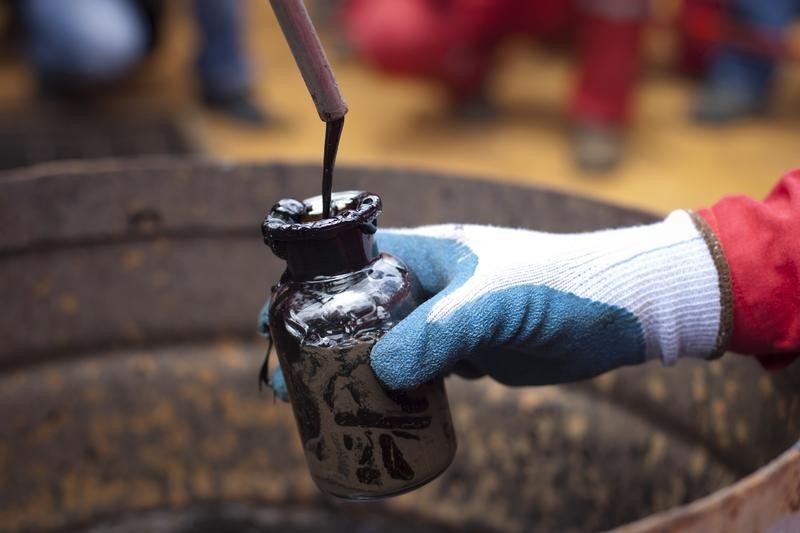Investing.com - Oil prices extended losses in North American hours on Wednesday, falling to the lowest level in nearly three weeks after data showed that oil supplies in the U.S. rose for the second week in a row.
Crude oil for October delivery on the New York Mercantile Exchange shed 87 cents, or 1.88%, to trade at $45.48 a barrel by 10:35AM ET (14:35GMT).
Prices were at around $45.98 prior to the release of the inventory data after slumping to a session low of $45.44 a barrel earlier, a level not seen since August 15.
The U.S. Energy Information Administration said in its weekly report that crude oil inventories rose by 2.3 million barrels in the week ended August 26. Market analysts' expected a crude-stock gain of 921,000 barrels, while the American Petroleum Institute late Tuesday reported a supply increase of 942,000 barrels.
Supplies at Cushing, Oklahoma, the key delivery point for Nymex crude, decreased by 1.039 million barrels last week, the EIA said.
Total U.S. crude oil inventories stood at 525.9 million barrels as of last week, which the EIA considered to be “historically high levels for this time of year”.
The report also showed that gasoline inventories declined by 691,000 barrels, disappointing expectations for a 1.157 million-barrel drop.
For distillate inventories including diesel, the EIA reported an increase of 1.496 million barrels.
Meanwhile, on the ICE Futures Exchange in London, Brent oil for November delivery dipped $1.02, or 2.11%, to trade at $47.69 a barrel after hitting a daily low of $47.69, the weakest since August 15.
On Tuesday, London-traded Brent lost 72 cents, or 1.46% amid fading hopes of a production freeze and concerns about additional output from the Middle East and Africa weighed on sentiment.
Chances that the upcoming meeting among major oil producers in late September would yield any action to reduce the global glut appeared minimal after Saudi Arabia's energy minister said last week that he does not believe any "significant intervention" in the oil market is necessary.
His reported comments come ahead of an informal meeting of the Organization of the Petroleum Exporting Countries in Algeria late next month, during which major oil producers are expected to discuss a potential output freeze.
However, analysts and traders remain skeptical the meeting would result in a coherent effort to reduce the global glut.
Crude prices soared almost $10 a barrel, or nearly 25%, in the first three weeks of August, as the prospect of an output freeze by major producers at an informal OPEC meeting in Algeria next month sparked a massive rally.
An attempt to jointly freeze production levels earlier this year failed after Saudi Arabia backed out over Iran's refusal to take part of the initiative, underscoring the difficulty for political rivals to forge consensus.
